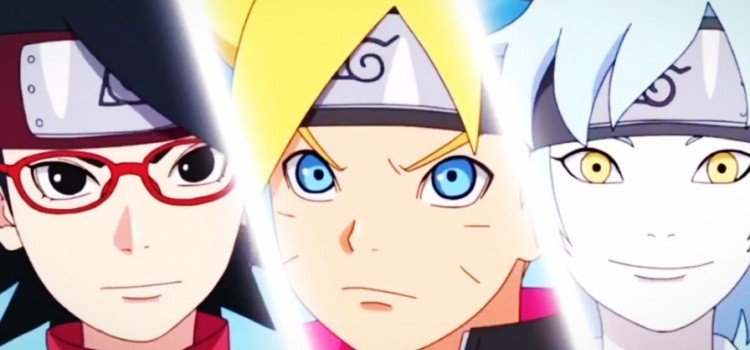The expression "Dattebayo" is one of the trademarks of the character Naruto Uzumaki, and anyone who follows the anime or manga has probably wondered: what does it really mean? Even those who watch with subtitles notice that this little word appears all the time, but it is rarely translated literally.
However, "Dattebayo" is not just a catchphrase thrown around. It carries personality, origin, and even emotion. And the most interesting part: other variations like "dattebane" and "dattebasa" also appear in related characters, revealing even more about their roots. The ending “ne” gives the phrase a softer and friendlier nuance, typical of female speech in Japan. In “Boruto,” Naruto's son, the character Kawaki uses "dattebasa", with the “sa” indicating firmness and conviction.
To better understand this unique way in which Naruto ends his sentences, we need to dive a little into the structure of the Japanese language and the creative proposal behind this linguistic choice.
We also recommend reading:
- Names of Naruto Characters with Meaning
- Naruto can be tough sometimes?
- Anime similar to Naruto - Ninjas and Powers

Table of Content
What does dattebayo mean?
The expression dattebayo [だってばよ] may seem like a mystery at first glance, but it is a linguistic construction with a very clear function: to emphasize what has been said, as if Naruto is saying "that's right, believe it!". However, there is no exact translation – nor does there need to be.
The ending or suffix dattebayo is composed of:
- DA - だ - an informal verb equivalent to desu [です];
- TTE - って - Stretch that forms datte [だって];
- BA - ば - used to express results and conditions;
- if, then, when, why, since;
- YO - よ - Particle for emphasis (hey!)
Teba [てば] is a very common particle in the Japanese language, you've probably heard a character wanting to get someone's attention in the anime saying neeetebaaa? Naruto's speech turns out to be a combination of da [だ], teba [てば] and yo [よ].
Together, these particles create an energetic tone, often used by intense, determined, and sometimes impulsive characters. This is exactly the case with Naruto. He also tends to shorten the expression to forms like “ttebayo” or even just “bayo,” depending on the situation and the rhythm of the speech.
This way of expressing oneself is not common in everyday Japanese, but it perfectly serves to showcase the character's unique personality.
Dattebayo is somewhat equivalent to dazo (だぞ) or daze (だぜ). Dazo is not childish (compared to dattebayo), and is mainly used by men. Both are impolite and strong.
As already explained, some sentences end up being modified. In some cases you will see expressions like sattebayo or nandattebayo.
Below we have a video explaining in detail the meaning of Dattebayo, Dattebane and Dattebasa:
"Dattebayo": A Reflection of Naruto's Personality
"Dattebayo", Naruto Uzumaki's verbal signature, goes beyond its syllables. Although the literal meaning has already been explored, it is the way this expression reflects Naruto's personality that deserves special attention. This simple word encapsulates the essence of his character, serving as a microcosm of his journey and evolution.
Naruto, often seen as an outsider in his own village, uses "Dattebayo" as a mark of his individuality. This unique expression highlights his distinct character and his refusal to conform or fade into the crowd. In each "Dattebayo," we hear the echo of his determination to be recognized and respected, not just as a ninja, but as a person of worth.
The constant repetition of "Dattebayo" in Naruto's dialogues serves as a reminder of his unwavering willpower. In the face of adversity, this expression is a battle cry, a symbol of his refusal to give up, regardless of the difficulties. It encapsulates his journey from childhood to his goal of becoming Hokage, illustrating that despite the obstacles, his spirit is never broken.
"Dattebayo" also reflects Naruto's youth and optimism. His youthful energy and enthusiasm are contagious, and this expression is a direct reflection of that. Naruto is not just a character who fights against enemies; he fights against norms, against doubt, and against negativity. "Dattebayo" is a sign of his eternal hope and his belief in the future.
We recommend reading: Naruto Theme Parks in Japan

What do dattebane and dattebasa mean?
In the anime we can see his mother say " dattebane " where the ne [ね] is a particle equivalent to our "Ne?" or "Isn't it?" and it sounds more feminine. We also hear "dattebasa" in Boruto, where the sa [さ] expresses affirmation, indication, and difference. The possibilities are endless, we just need to place the particle we want.
We recommend reading: What does NE (ね) really mean in Japanese?
It is very common in Japanese, especially children or anime characters, to use suffixes or endings in sentences, but it does not change the meaning of the expression at all. The most these particles can do is add emphasis or draw attention.

He can use it in different ways, without even using the particle da or datte. In some cases he said urusette bayo ! which means shut up! In reality the possibilities are endless!
It was a genius for the author to try to create his own dialect in his work. The particle choices matched the characters perfectly and gave the right emphasis. Of course, the author was also inspired by other real things to make his work.
Read also: Naruto and Boruto coloring pages to download, print and color
